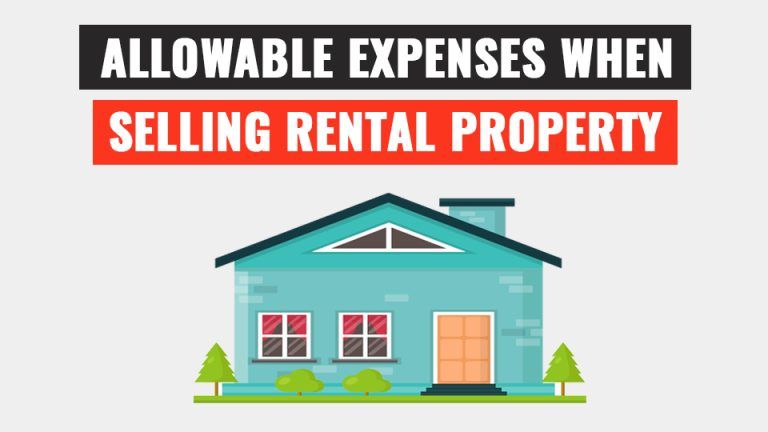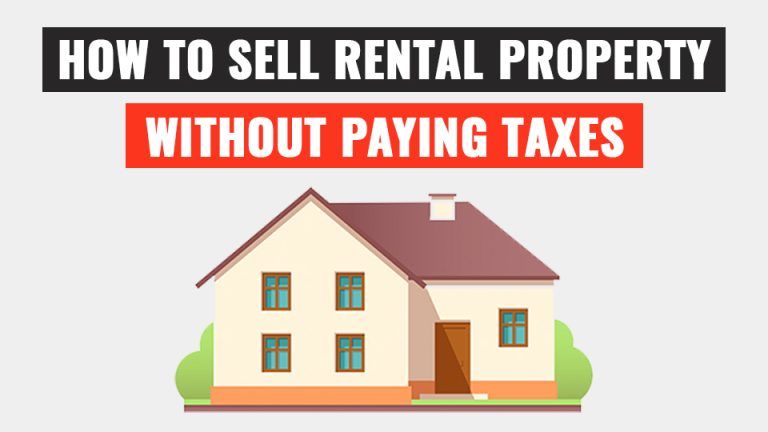Allowable Expenses When Selling Rental Property

Selling a rental property can be a complex financial transaction with significant tax implications. Understanding the allowable expenses and deductions is crucial for real estate investors to maximize their profits and minimize their tax burden.
From capital gains taxes to specific deductions for rental properties, navigating the intricate web of tax regulations requires careful consideration and thorough record-keeping. Let’s learn about allowable expenses when selling your rental property.
What Are Capital Gains Tax in Real Estate?
Capital gains taxes are levied on the profit made from selling an asset, including real estate. When it comes to selling rental properties, these taxes apply to the difference between the property's purchase price (plus any improvements) and its selling price. For real estate investors, understanding capital gains tax is essential, as it directly impacts the overall profitability of their investment.
In the context of rental properties, capital gains taxes are calculated based on the property's appreciation in value during the ownership period. However, it's important to note that the tax rate can vary depending on factors such as the duration of ownership and the investor's income level. Real estate investors must be aware of these nuances to effectively plan their investment strategies and optimize their tax positions.
What is the Difference Between Short-Term and Long-Term Capital Gains?
The distinction between short-term and long-term capital gains is crucial for understanding the tax implications of selling a rental property. This classification is based on the duration of ownership and can significantly impact the amount of tax owed.
Short-Term Capital Gains
Short-term capital gains apply to properties held for one year or less. These gains are taxed at the investor's ordinary income tax rate, which can be as high as 37% for high-income earners. This higher tax rate makes short-term investments less attractive from a tax perspective, especially for those in higher tax brackets.
Long-Term Capital Gains
Long-term capital gains come into play for properties owned for more than one year. These gains benefit from preferential tax treatment, with rates typically ranging from 0% to 20%, depending on the investor's taxable income. This lower tax rate incentivizes long-term investment and can result in substantial tax savings for real estate investors who hold their properties for extended periods.
Common Allowable Expenses
When selling a rental property, several expenses can be deducted to reduce the taxable gain. Here are four common allowable expenses:
- Legal and professional fees: These include costs for attorneys, accountants, and other professionals involved in the sale process. Fees for title searches, document preparation, and tax advice related to the sale are typically deductible.
- Real estate agent commissions: The commission paid to real estate agents for facilitating the sale is a significant deductible expense. This usually amounts to 5-6% of the property's selling price and can substantially reduce the taxable gain.
- Home repairs and improvements: Costs incurred for repairs and improvements to prepare the property for sale can be deducted. This includes expenses for painting, fixing structural issues, or upgrading systems to make the property more marketable.
- Staging and marketing costs: Expenses related to staging the property for potential buyers and marketing efforts to attract interested parties are deductible. This may include professional staging services, photography, virtual tours, and advertising costs.
Which Tax Deductions Are Specific to Rental Properties?
Depreciation
Depreciation is a significant tax benefit for rental property owners. It allows investors to deduct the cost of the property over its useful life, typically 27.5 years for residential properties.
When selling a rental property, the accumulated depreciation must be recaptured and may be subject to a 25% tax rate. However, the initial depreciation deductions can provide substantial tax savings over the years of ownership.
Property Taxes
Property taxes paid on rental properties are fully deductible as an expense. This includes not only the regular annual property taxes but also any special assessments or local improvement taxes. When selling a rental property, any property taxes paid up to the date of sale can be deducted, reducing the overall taxable gain.
Mortgage Interest
For rental property owners with a mortgage, the interest paid on the loan is a deductible expense. This deduction can significantly reduce the taxable income generated by the property over the years. When selling, any mortgage interest paid up to the sale date can be included in the deductible expenses, further offsetting the capital gains.
Home Repairs
Ongoing maintenance and repairs are necessary expenses for rental property owners. These costs, which keep the property in good condition and maintain its value, are deductible in the year they are incurred. When preparing to sell, any last-minute repairs or maintenance can also be deducted, helping to reduce the taxable gain from the sale.
Calculating Net Profit from the Sale
To accurately determine the net profit from selling a rental property, follow these steps:
- Determine the selling price of the property
- Calculate the adjusted basis (original purchase price plus improvements minus depreciation)
- Subtract the adjusted basis from the selling price to find the capital gain
- Add up all allowable expenses related to the sale
- Deduct the total expenses from the capital gain to arrive at the net profit
Record Keeping and Documentation
Maintaining accurate records is crucial when selling a rental property. Proper documentation not only ensures compliance with tax regulations but also maximizes potential deductions. Real estate investors should keep detailed records of all expenses related to the property, including
- Purchase documents
- Improvement receipts
- Maintenance costs
- Professional fees incurred during ownership and sale.
Essential documents to retain include property deeds, mortgage statements, property tax bills, insurance records, and receipts for all repairs and improvements. Keep these records for at least three years after filing the tax return for the year of sale, though some experts recommend keeping them for up to seven years.
Organizing these documents in a systematic manner, whether through physical files or digital storage, can save time and stress during tax preparation and in the event of an audit.
Accurate calculation of net profit from the sale requires careful consideration of all factors, including the property's adjusted basis and associated selling expenses. Maintaining meticulous records throughout the ownership period is essential for maximizing deductions and ensuring compliance with tax laws.
Real estate investors should also be aware of strategies to defer capital gains taxes, such as utilizing a 1031 exchange. This provision allows investors to postpone paying taxes on the gain from the sale of an investment property by reinvesting the proceeds into a like-kind property. While complex, this strategy can be a powerful tool for building long-term wealth through real estate investments.
Sell Your Home Fast for Cash
If you need to sell your house fast but don’t want the hassle of a traditional home sale, contact Local Guy Buys Houses. We buy houses as-is. No repairs are needed. Avoid closing costs and realtor commissions. Close in as little as seven days. Call 855-205-5999 to get a fast cash offer from our local home buyers.
Get Your Fair & Honest All-Cash Offer Today! No Obligations!
We will get back to you as soon as possible.
Please try again later.
By submitting this form, you agree to our Conditions of Use and Privacy Policy. You may receive both automated and personal text messages. Reply STOP at anytime to opt-out.
Or Call Us Now At 855-205-5999









